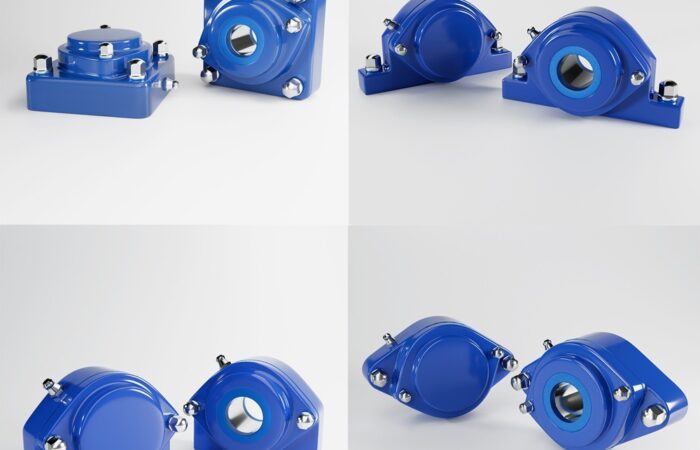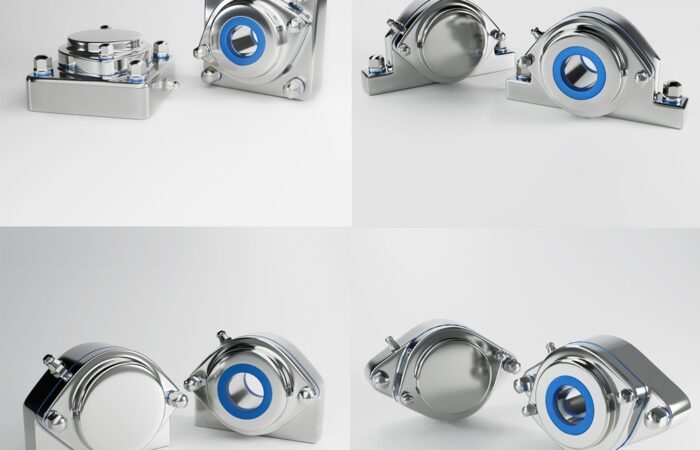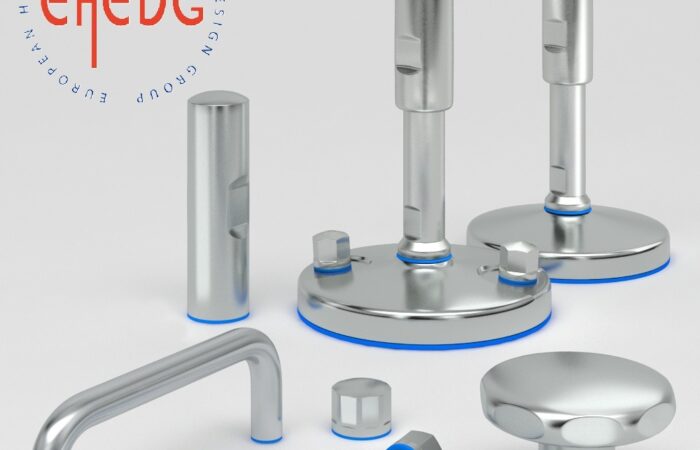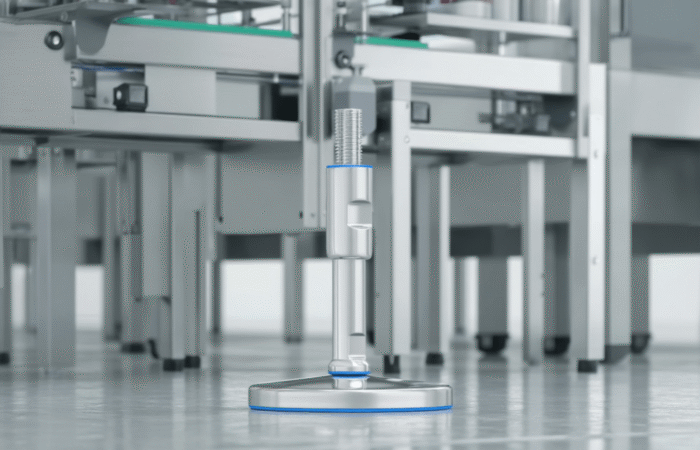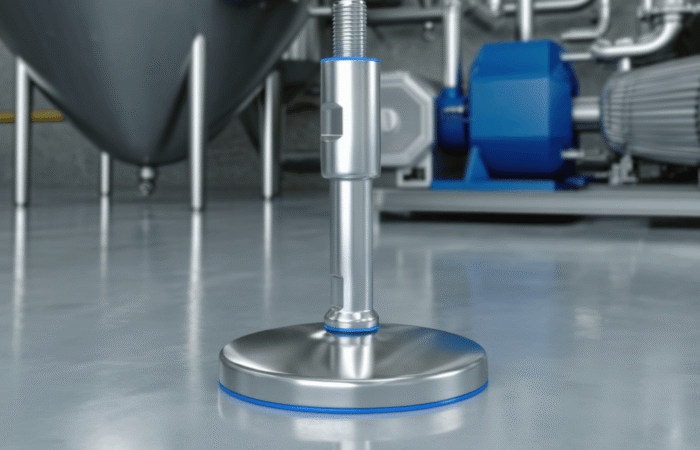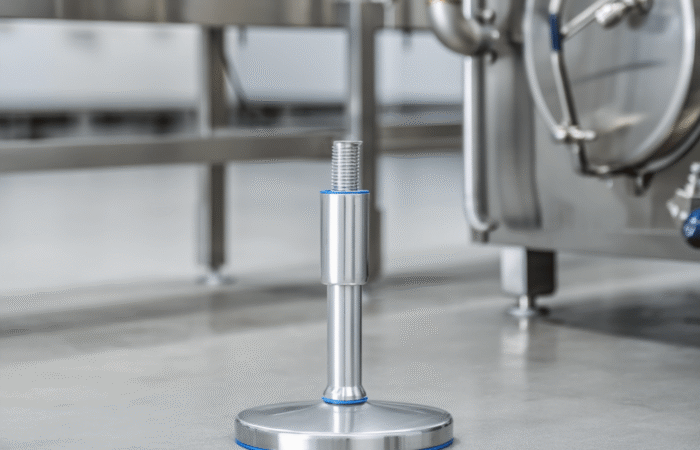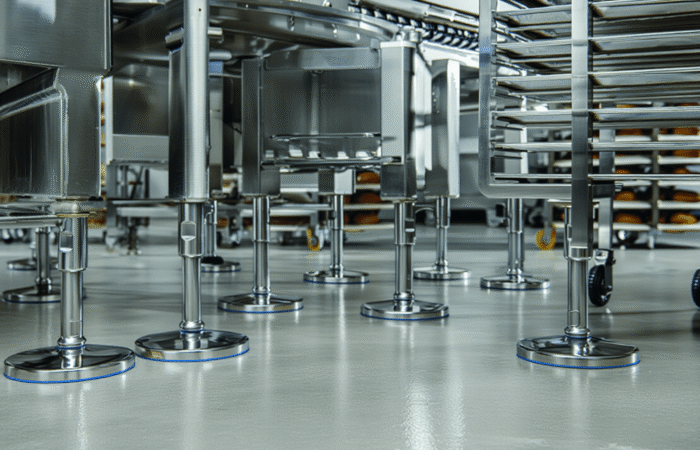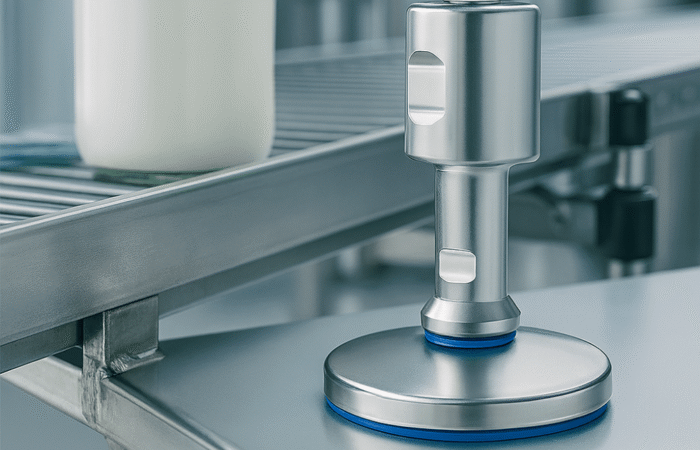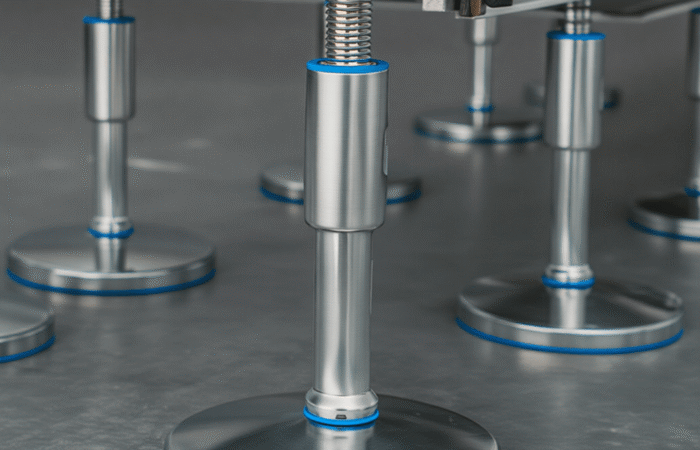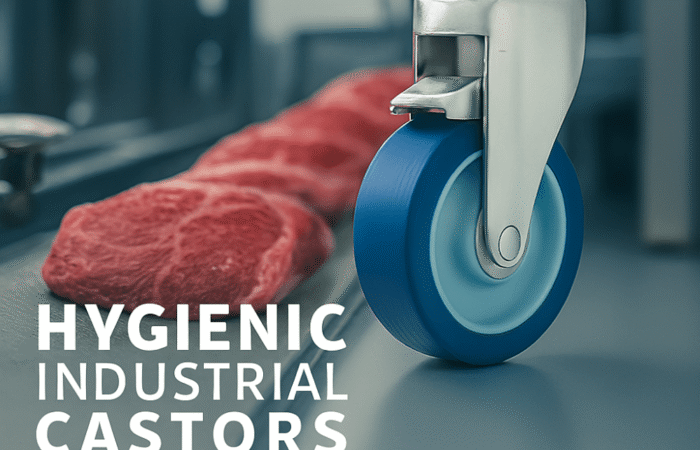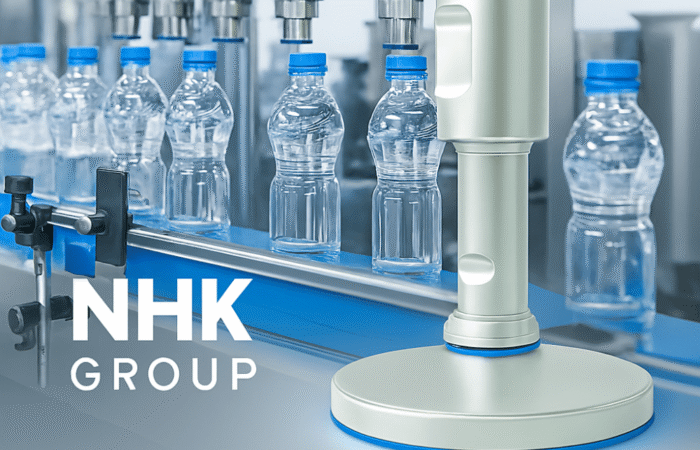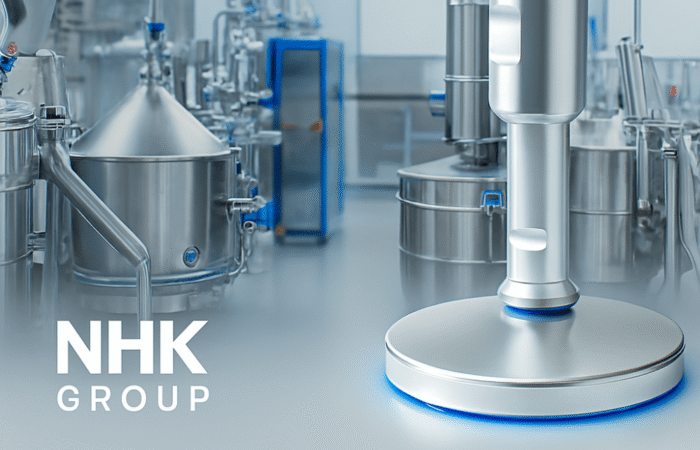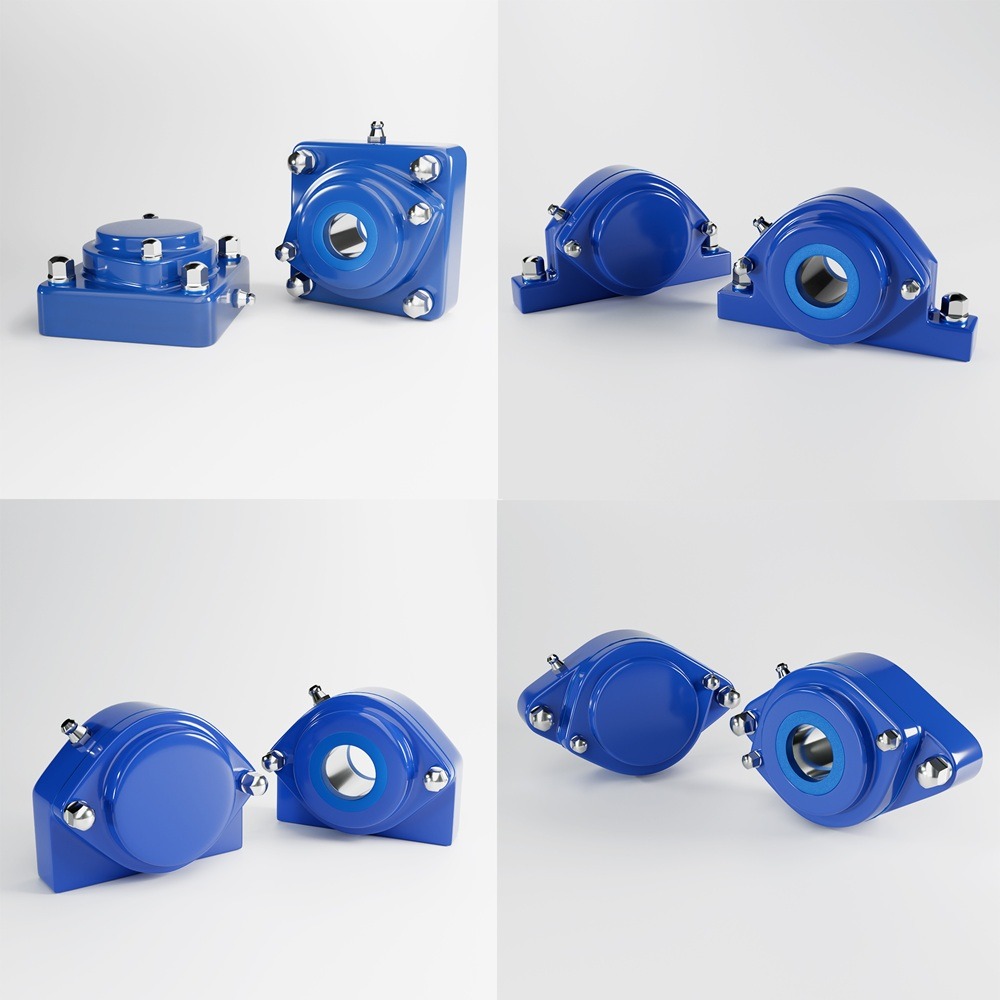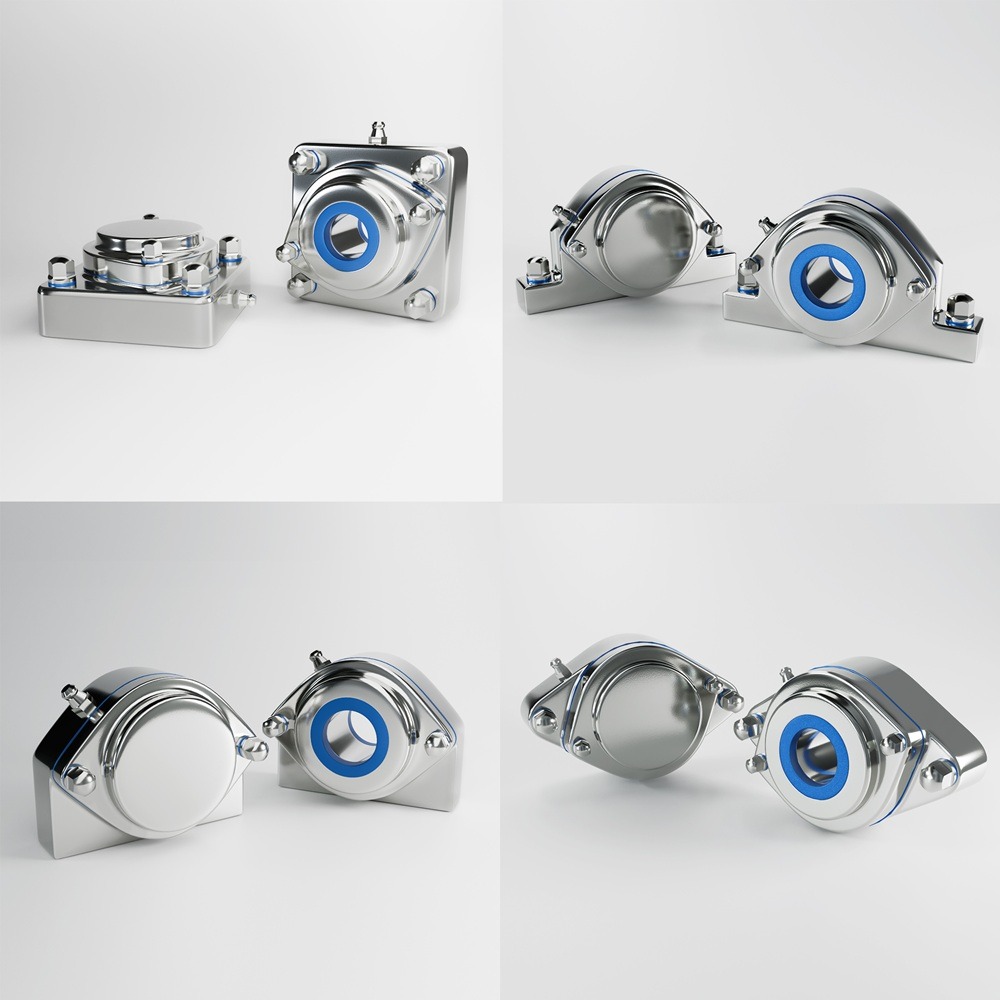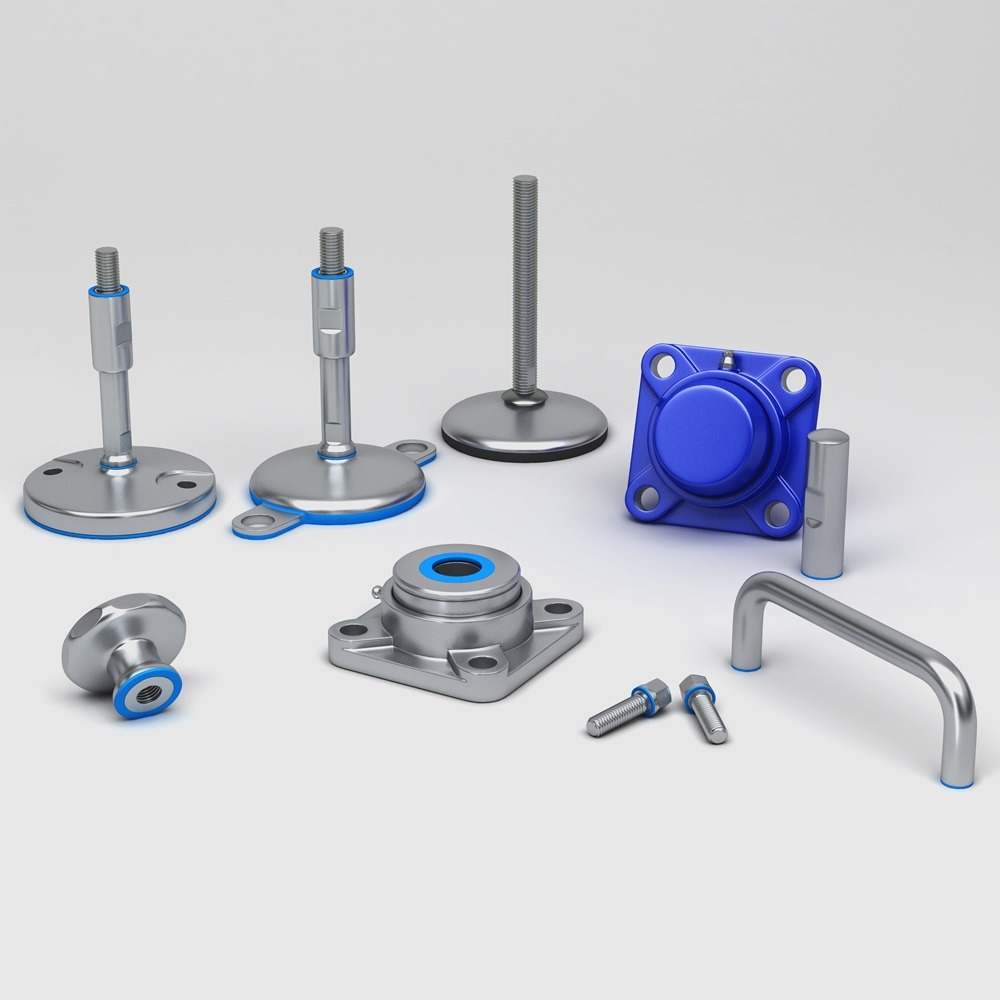
Machine components in stainless steel hygienic design
In today’s competitive global marketplace, industries like packaging, food processing, pharmaceuticals, and biotechnology are constantly evolving. To meet the high standards of efficiency, safety, and hygiene, these sectors increasingly rely on advanced machine components crafted from stainless steel in a hygienic design. These components, which include leveling feet, bearing units, and other essential parts, play a crucial role in maintaining strict sanitation standards, reducing contamination risks, and ensuring equipment reliability. Strategic planning and development around the use of these stainless steel hygienic machine components are vital for businesses striving to achieve operational excellence. Hygienic design refers to the engineering of machinery and components to ensure that they are easy to clean, resistant to corrosion, and designed to prevent the build-up of bacteria and other contaminants. In industries like food processing, pharmaceuticals, and biotechnology, hygiene is paramount. Any compromise can lead to product contamination, costly recalls, and damage to the brand’s reputation. Stainless steel, particularly in hygienic designs, is the ideal material for such components due to its corrosion resistance, durability, and ease of cleaning. Its non-porous surface ensures that bacteria and other pathogens cannot penetrate, while its strength ensures long-lasting performance even in extreme conditions. Companies that strategically integrate these components into their equipment setups not only enhance their operations but also demonstrate their commitment to maintaining the highest hygiene and safety standards. The packaging industry plays a vital role in preserving product quality, particularly in food, pharmaceuticals, and biotechnology. Whether packaging liquids, solids, or powders, the equipment used must ensure both accuracy and hygiene. Machine components in stainless steel hygienic design, such as leveling feet, bearings, and conveyor parts, provide the foundation for efficient, sanitary operations. Strategic planning in the packaging industry requires considering not just the performance of these components but also their compliance with strict regulations like the FDA and European Hygienic Engineering and Design Group (EHEDG). Businesses that invest in certified stainless steel hygienic components can reduce maintenance time, avoid contamination, and increase productivity. For example, choosing IP67 waterproof bearing units ensures longevity and reliability, even in environments where moisture, chemicals, or temperature fluctuations are present. Moreover, incorporating stainless steel hygienic machine components into packaging lines can significantly lower the risk of product recalls, which is a crucial factor in strategic planning. This approach leads to more reliable packaging systems, minimizes downtime, and ensures compliance with food safety regulations. Food processing is a highly regulated industry where hygiene is crucial to ensuring safe, consumable products. Strategic development in this industry revolves around implementing equipment that not only delivers high productivity but also guarantees that food remains uncontaminated throughout the production process. Stainless steel hygienic machine components are essential to achieving these goals. Leveling feet, designed in compliance with hygienic standards, offer both stability and cleanliness in food processing environments. These components allow for easy adjustment, making machinery more adaptable to various operational needs, while their stainless steel construction ensures they can withstand rigorous cleaning protocols. Bearings and flanges, particularly those in waterproof and easy-to-clean designs, contribute to reducing contamination risks and enhancing equipment longevity. For businesses in the food processing industry, strategic planning must include investing in machine components that are not only durable but also designed to minimize the risk of contamination. This approach aligns with global safety standards, reducing the risk of non-compliance and costly production halts. In the pharmaceutical industry, product purity is paramount. Equipment must meet stringent hygiene standards, and even the smallest risk of contamination can have severe consequences. The use of machine components in stainless steel hygienic design is critical to ensuring that pharmaceutical products are produced in a clean, contaminant-free environment. Pharmaceutical processing equipment, such as mixers, tablet presses, and conveyor systems, rely on high-quality machine components to function efficiently. Stainless steel hygienic bearings, seals, and leveling feet ensure that the equipment remains contamination-free and easy to clean. Strategic planning in this industry focuses on incorporating components that meet Good Manufacturing Practice (GMP) and regulatory standards such as those set by the FDA and European Medicines Agency (EMA). For pharmaceutical companies, incorporating hygienic machine components made of stainless steel into their production lines is not only a requirement but also a way to optimize operational efficiency. These components reduce the need for frequent maintenance, improve equipment reliability, and ensure compliance with health and safety regulations, thus enhancing the company’s overall strategic development. The biotechnology industry, which involves the production of sensitive products such as vaccines, biologics, and biosimilars, demands the highest levels of hygiene and precision. Stainless steel hygienic machine components play an integral role in maintaining clean, sterile environments crucial for biotechnological processes. In biotechnology, equipment downtime can lead to significant losses, both financially and in terms of product quality. Hygienic design ensures that machine components are not only durable and reliable but also resistant to corrosion and contamination. Bearings, flanges, and leveling feet in stainless steel are essential to ensuring the integrity of the production process. Strategic development in the biotechnology sector requires an emphasis on the use of hygienic components that meet both performance and sanitation requirements. By investing in high-quality stainless steel components, biotechnology companies can reduce contamination risks, ensure compliance with industry regulations, and boost productivity. Across industries like packaging, food processing, pharmaceuticals, and biotechnology, the integration of stainless steel hygienic machine components is vital for both operational success and regulatory compliance. Strategic planning in these industries must include the selection of components that offer superior performance, durability, and sanitation. By focusing on the use of stainless steel components designed for hygienic applications, companies can optimize their production processes, reduce the risk of contamination, and meet the highest standards of safety and efficiency. These investments are not just about improving immediate operations but also about positioning the business for long-term success in highly competitive and regulated markets. Industrial machinery requires precision-engineered components that meet exacting standards for durability, safety, and performance. This comprehensive guide explores the essential machinery parts that drive modern manufacturing across food processing, packaging, and chemical industries. Understanding the difference between Pillow Block Units and Direct Mount Bearings is crucial for engineers and procurement professionals seeking to optimize equipment longevity. Pillow block bearings, also known as plummer blocks, are self-aligning bearing units that simplify installation and significantly reduce maintenance costs. These versatile components mount on machine frames and support rotating shafts with exceptional precision, ensuring smooth operation in demanding industrial environments. Flange bearing units offer a more compact alternative, featuring integrated flanges that enable direct mounting to flat surfaces without additional hardware. Both designs come in various materials, including stainless steel grades optimized for corrosive environments and food-grade applications where hygiene is paramount. The importance of material selection cannot be overstated in machinery design. 440C Steel and 420 grades offer distinctly different properties suited to specific applications and environmental conditions. The 440 stainless steel variant provides superior hardness and exceptional edge retention, making it ideal for cutting tools and high-wear applications requiring maximum durability. Meanwhile, 420 stainless steel offers better corrosion resistance and is preferred in food processing equipment where chemical exposure is common. Hygienic stainless steel components have become essential in food machinery, meeting EHEDG standards and facilitating rapid equipment cleaning required in modern food production facilities. Understanding ingress protection ratings is equally critical for machinery durability and operational reliability. IP67 rating ensures protection against dust and temporary water immersion, while IP68 rating provides complete dust protection and sustained water immersion capabilities for submerged operations. The IP69K standard represents the highest protection level, specifically designed for high-pressure wash-down environments found in industrial food processing facilities. These ratings define how effectively machinery components withstand environmental challenges and maintain performance. Modern industrial facilities increasingly demand equipment that combines high performance with ease of maintenance and sanitation. The choice between different bearing types depends on operational requirements, environmental conditions, and budget constraints. Proper component selection ensures extended equipment lifespan, reduced downtime, and improved operational efficiency.Strategic Planning and Development Using Stainless Steel Hygienic Design Machine Components in Key Industries
Importance of Hygienic Design in Stainless Steel Machine Components
Strategic Planning in the Packaging Industry
The Role of Hygienic Components in Food Processing Industry Strategy
Strategic Development in the Pharmaceutical Industry
Hygienic Components in Biotechnology Industry Strategy
The Strategic Importance of Hygienic Stainless Steel Machine Components
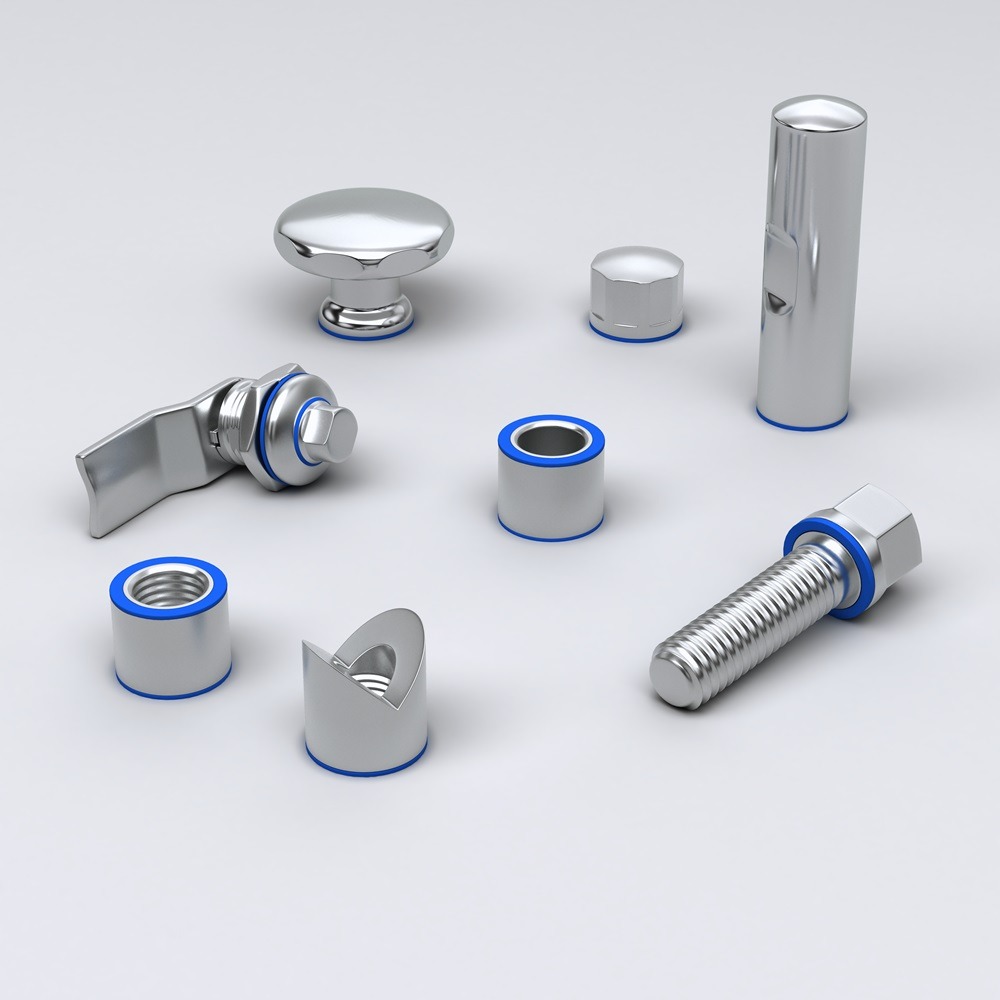
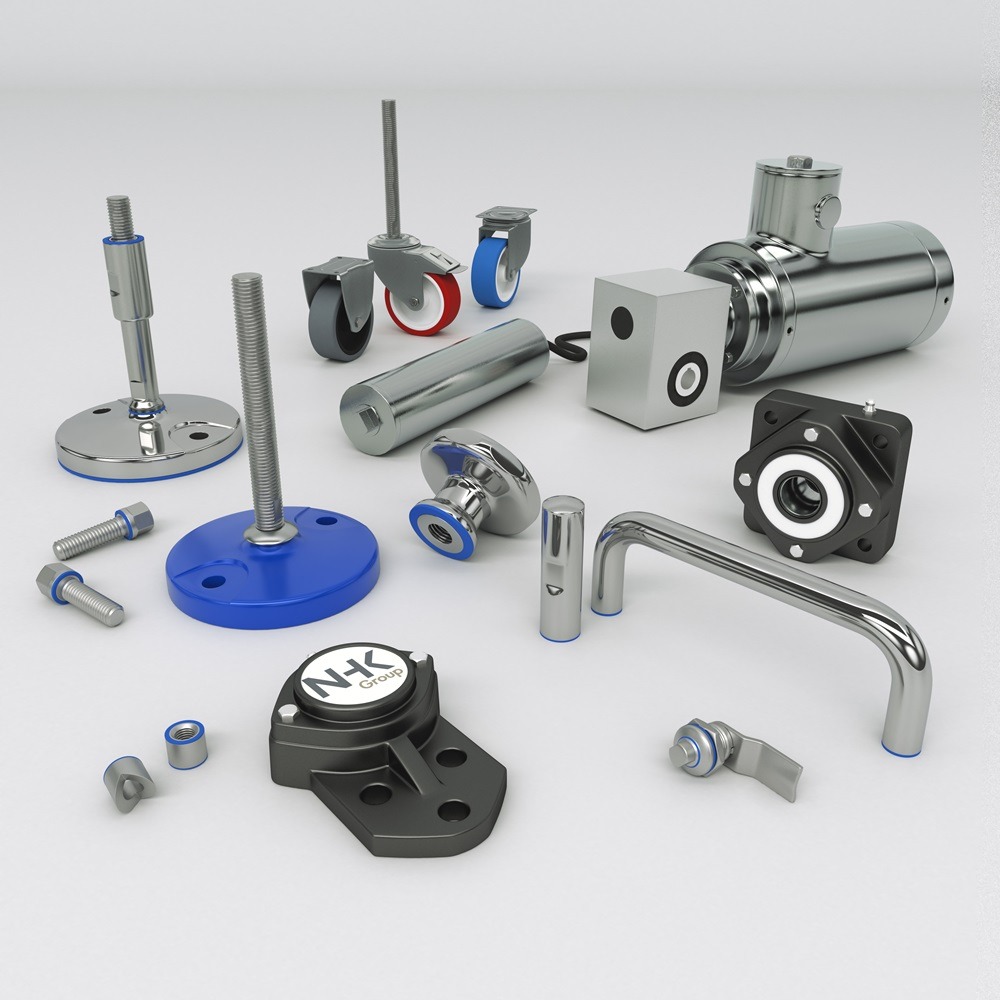
Contact
Understanding Machinery Components & Protection Standards
